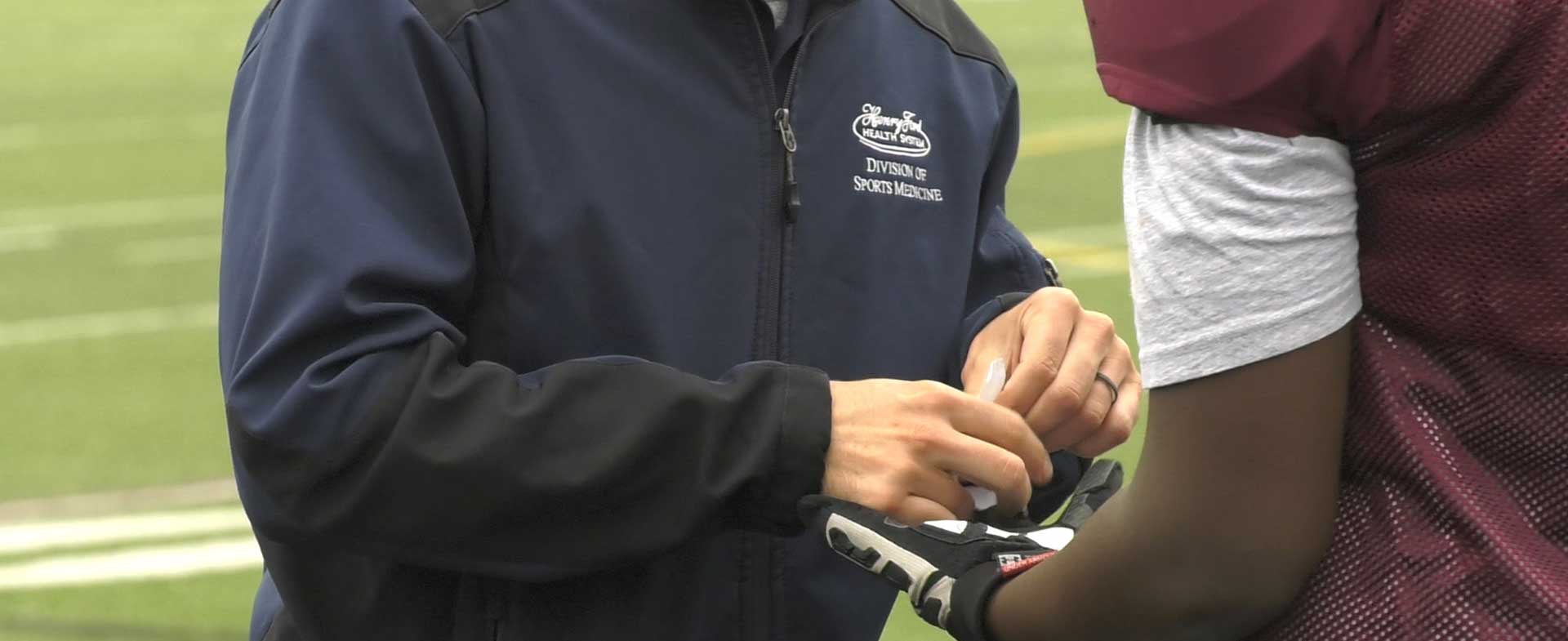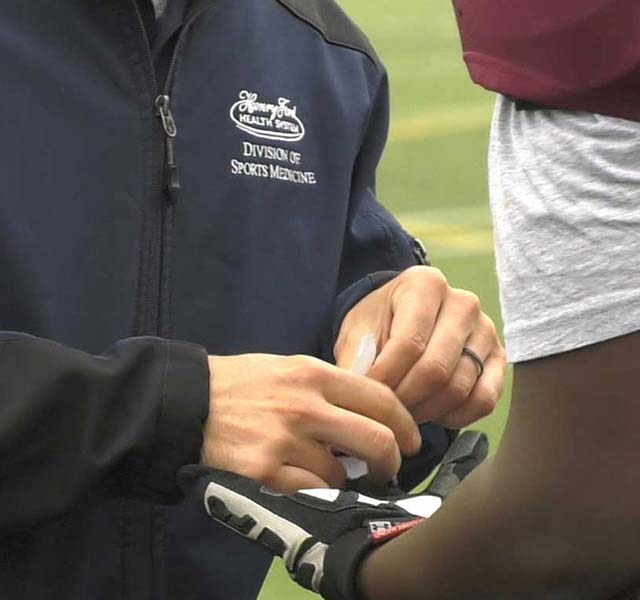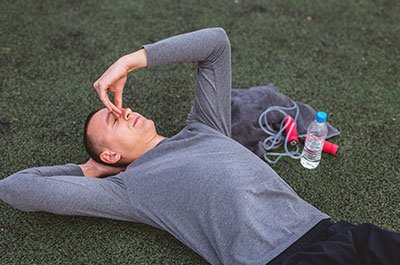Athletic trainers are licensed, certified health professionals and a jack-of-all-trades in the field of sports medicine – skilled in diagnosing, treating, rehabilitating and preventing injuries.
And like an experienced craftsman or craftswoman, athletic trainers have their own version of a toolkit they keep on the sideline. The athletic training bag is equipped with supplies and equipment for just about any situation that may arise. It can range in size from a large duffle bag to a standard backpack style.
“Anything from football to track and field, lacrosse, basketball, wrestling, hockey, any of the sports we have here at the high school, this is the bag that will follow me pretty much to any event,” Nick Parkinson, one of Henry Ford Health’s lead athletic trainers, says of his black, waterproof black bag.
Parkinson is among more than 30 Henry Ford athletic trainers who support athletic programs at more than 20 high schools, colleges and universities and professional teams throughout the metro area. The athletic trainers also work with Henry Ford sports medicine physicians and physical medicine and rehab specialists.
“No matter a game or practice situation, this bag affords me to address anything that might come up, whether it be an emergent situation to a simple tape-and-go situation. Anything the athlete would need in order to perform in their sport, or practice, we can address with what’s in the bag,” he says.
A peek inside Parkinson’s athletic training bag reveals standard items of supply: athletic tape (in several versions), band-aids, bandages, antacids, petroleum jelly and scissors. He then zips open a black pouch containing screwdrivers, pliers, tape cutter, and two specialized tools – Trainer’s Angel and tuning fork. Trainer’s Angel, which resemble pliers, are used to quickly cut through helmet screws and facemask attachments; a tuning fork’s vibration is used to test for identifying fractures.
There’s also a water key – a must-have to access water from the outside, especially at a high school. In a small plastic storage box, Parkinson carries extra helmet and shoulder pad pieces, a quick clotting solution, and sting and bite relief for insect bites. Parkinson also carries an EpiPen for treating allergic reactions, a resistance band for rehab and ankle taping, elastic wraps and extra padding for injuries.
“We have a very broad scope of we can do,” Parkinson says. “And we know a lot of what the athletes will need.”
Sometimes, the needs of others on or off the field may require medical attention. That can be game officials, a cheerleader or a spectator. “I’ve given out a lot of band-aids to the brothers and sisters of the athletes who happen to be running underneath the bleachers and catch their hand or head and have a cut,” he says.
Cuts, abrasions, sprains, strains. No matter the injury, the athletic training bag equips athletic trainers with whatever supplies they need.
“I will use most of what’s in the bag, regardless of injury,” Parkinson says. “We’re very well trained in identifying any injury, knowing what needs to be done and making those split-second decisions. Do we activate EMS, do we not? Can this athlete, with a little bit support of the tape or a bracing go back into the game or it is something we need to take him out.”
From injury prevention to treatment of sports-related conditions, visit henryford.com/sports or call (313) 972-4216 for an appointment within 24 business hours or to download our sports medicine app, featuring first aid/injury help, videos for all athletes, contact information for physicians and trainers, and more.
Nick Parkinson, M.Ed., AT, ATC, is a certified athletic trainer who provides care to patients in coordination with our orthopedic surgeons and sports medicine physicians at Henry Ford Medical Center – Columbus in Novi. He also serves as the athletic trainer for the student athletes at University of Detroit-Jesuit High School.



